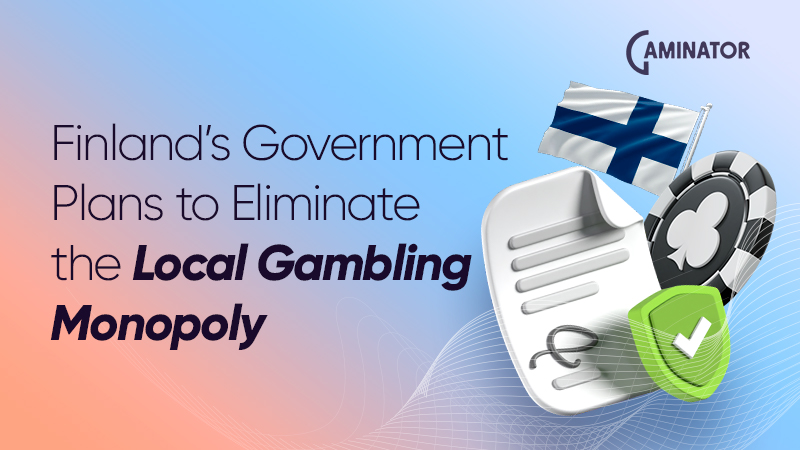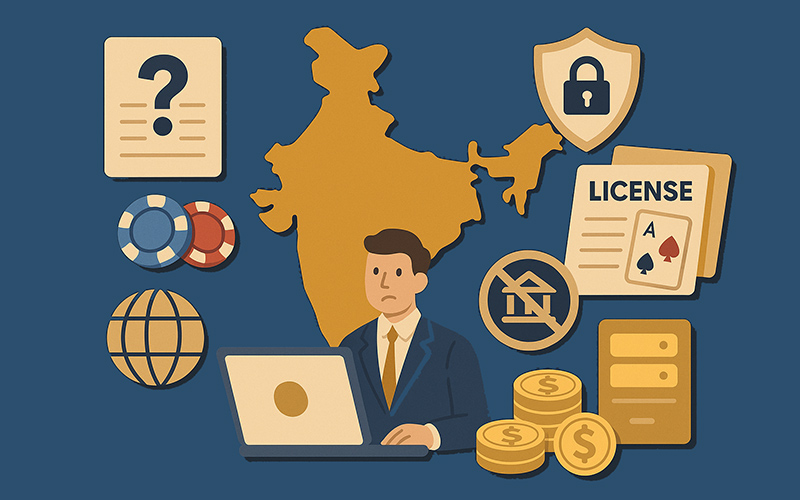Finland’s Government Plans to Eliminate the Local Gambling Monopoly
Key Details of the Initiative

For many years, the state-owned operator Veikkaus dominated the local gambling sector. However, the corporation has recently faced a record revenue decrease and a substantial migration of customers to offshore entertainment platforms.
Finland's iGaming licensing policy will be modelled on principles that have already demonstrated effectiveness in Sweden's gambling industry. The final legislative amendments are anticipated to be enacted by Parliament in 2027.
The reform will be implemented in multiple phases. The state's Ministry of the Interior mandates that the restructuring commence with the issuance of permits to B2C brands, thereby authorising operators to legally provide various remote casino and betting services. Certification processes for content suppliers and other representatives of the B2B sector will not start until 2027.
Even after the market opens to private enterprises, Veikkaus will persist in providing services to the populace and will preserve exclusive rights to:
- lotteries and instant win tickets;
- brick-and-mortar casinos and stationary slot machines;
- all gaming activities within land-based entertainment venues.
The previously responsible National Police Board will step down from its regulatory duties and be substituted by the Licensing and Supervisory Authority. This new organisation will handle various specialised tasks, including certification, compliance checks, and enforcement of marketing constraints.
The main goal of this government effort is to tackle problems that the monopoly system cannot solve. Finland’s Competition and Consumer Authority states that foreign operators make up around 50% of the total iGaming profit.
Entertainment Experience: Reform’s Influence
Under the terms of the introduced bill, business owners will be obliged to rigorously verify clients' identities and establish a mandatory age limit of 18 and above. They are also required to utilise specialised transaction monitoring instruments.
Currently, the government is actively working on a national self-exclusion platform, similar to those effectively implemented in Sweden and Denmark. This system will enable customers to independently block access to various solutions.
The avoidance options include:
- all services carrying a risk of gambling losses;
- certain content formats;
- specific brands.
Some provisions outlined in the document focus on the marketing area. The main points are:
- promotion is permitted but should be moderate in volume, reach, and frequency;
- operators are allowed to utilise their social media channels;
- advertising content must clearly specify age limits, risks of gambling addiction, and contact details for support services.
The reform's initiators strive to strike an optimal balance between market freedom and improved customer protection.
Revised Legislation: Expectations
Despite holding a monopoly, the Finnish gambling sector's total annual revenue surpasses €2 billion, with over 50% generated from online betting. As legislative reforms approach, the state-owned Veikkaus is preparing to restructure and expand its operations. To bolster its standing, the brand has signed an agreement with OpenBet and intends to launch a new sportsbook portal.
This step emphasises the monopolist’s aspiration to stay competitive as the market opens. The potential for rivalry increases, as numerous premier international operators, such as Kindred Group and Betsson AB, have already revealed their plans to enter the Finnish gambling market.
Possible Consequences for the Industry

Despite the economic potential and new revenue streams the reform brings for the country, niche specialists remain cautious about its possible negative influence. A recent public health research revealed that around 4% of Finnish adults demonstrate signs of moderate-risk or problematic behaviours, affecting approximately 733,000 of their relatives and friends.
Industry analysts worry that regulated access to various entertainment products might worsen current issues. However, supporters of the reform argue that these concerns are exaggerated, pointing out that licensed portals actually offer better player protection and lower risks.
Gaminator’s professionals diligently monitor recent legislative updates and the overall situation in the most promising jurisdictions to equip entrepreneurs with the information needed to launch a thriving entertainment business anywhere in the world.
Check the information used to contact us carefully. It is necessary for your safety.
Fraudsters can use contacts that look like ours to scam customers. Therefore, we ask you to enter only the addresses that are indicated on our official website.
Be careful! Our team is not responsible for the activities of persons using similar contact details.



